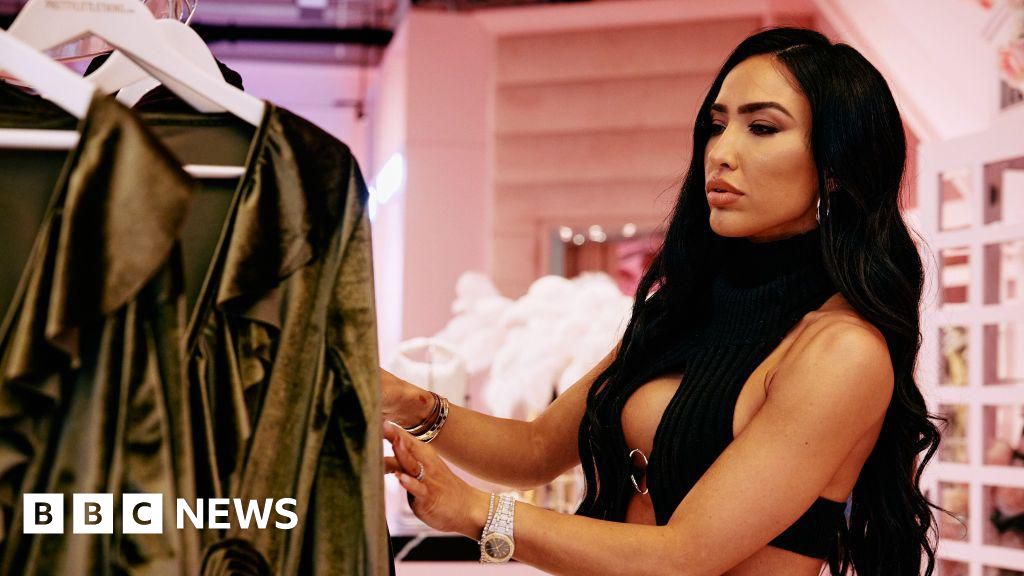Stay informed with free updates
Simply sign up to the War in Ukraine myFT Digest — delivered directly to your inbox.
Serbia has been discreetly stepping up sales of ammunition to the west that ends up bolstering the defence of Ukraine — even though it is one of only two European countries not to join western sanctions against Russia.
Estimates shared with the Financial Times put Serbia’s ammunition exports that have come to Ukraine via third parties at about €800mn — a sum President Aleksandar Vučić indicated was broadly accurate — since Russia’s full-scale invasion of Ukraine in 2022. He presented the situation as a business opportunity, insisting he would not take sides in the war.
“This is a part of our economic revival and important for us. Yes, we do export our ammunition,” he said in an interview. “We cannot export to Ukraine or to Russia . . . but we have had many contracts with Americans, Spaniards, Czechs, others. What they do with that in the end is their job.
“Even if I know [where the ammunition ends up], that’s not my job. My job is to secure the fact that we deal legally with our ammunition, that we sell it . . . I need to take care of my people, and that’s it. That’s all I can say. We have friends in Kyiv and in Moscow. These are our Slav brothers.”
Asked if the €800mn figure was in the right “ballpark”, he said not over one year but “maybe in two or three years, something like that”.
Serbia is neither a member of Nato nor the EU, and its people have long had a sentimental attachment to Russia while resenting the west after Nato’s bombing campaign on their country in 1999. Belgrade also counts on Moscow to block international recognition of Kosovo, the former Serbian province recognised by most western states, but which is held back from UN membership by Russia and China.
Vučić has resisted western pressure to adopt the Russia sanctions regime and has allowed Russian flights to continue, even as he says he is committed to his country becoming an EU member. He has also sought to hedge his bets and keep a distance between himself and Russian President Vladimir Putin.
“Europe and the US have worked for years to distance Vučić from Putin,” a western diplomat said, adding that a crucial player was US ambassador Christopher Hill, who arrived in Belgrade a month after the full-scale invasion.
“Everyone expected [Hill] to fight with Vučić but his only agenda has been to distance Belgrade from Moscow,” the diplomat said. “He has succeeded. Vučić has not met, nor even called Putin for years. And of course there is the question of weapons shipments that end up in Ukraine.”
For the west, seeking support for Ukraine has become more important than pushing Serbia’s nationalist leader on democratic reforms, analysts said. “Vučić sweeps it under the carpet that there is support — but not directly — to Ukraine,” said Ivan Vejvoda, a fellow at the Institute for Human Sciences in Vienna. “He speaks in a fuzzy way. It is clear that he does not want to recognise this — he wants to keep his far right happy — while in fact Serbia has [offered] massive aid to Ukraine against Russia.”
Serbia had a thriving arms industry during the cold war when it was part of Yugoslavia, and is a manufacturer of Soviet-standard ammunition calibres still widely in use in Ukraine’s armed forces. It is also joining a global trend of looking to boost arms sales at a time when Russia has launched a war economy that has ramped up production faster than Ukraine’s western allies.
Vučić said Serbia has a golden opportunity as its arms were cheaper than in the west, adding that the scale of Serbia’s overall ammunition exports could increase.
“The Russians did a great job regarding renewal and revival of their production of armament. They do it swiftly, but when you need to make a profit, then it’s not easy,” he said.
“In the United States and Germany, you cannot say now you’ll produce another tank without earning money . . . And we are good because people now see it [that we are cheaper].”
Serbia’s participation in the ammunition flow to Ukraine is sufficiently veiled that official data do not reflect it, according to diplomats and analysts. The Kiel Institute for the World Economy, which monitors support for Ukraine, has not tracked Serbian activities directly and has not encountered systematic evidence of Serbian contributions, said Christoph Trebesch, who heads the effort.
Serbian finance minister Siniša Mali said the defence industry, which employs 20,000 people in the country of 7mn, could expand rapidly.
“I see it as a business group,” he said. “I think we are still way below the capacities of more developed countries, but now is the time.”
Credit: Source link











